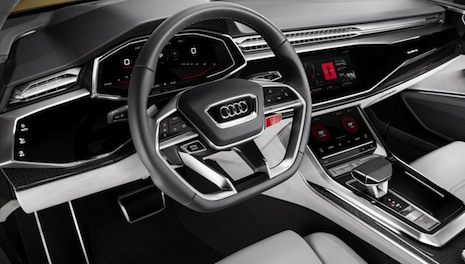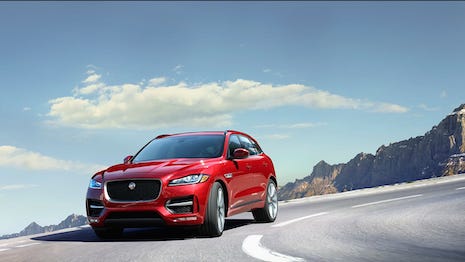- About
- Subscribe Now
- New York,
August 9, 2017

 Audi recently partnered with Google for new infotainment innovation. Image credit: Audi
Audi recently partnered with Google for new infotainment innovation. Image credit: Audi
German automakers BMW, Audi and Mercedes-Benz continue to dominate the luxury auto industry by making up approximately 80 percent of the market share, according to Smart Research Insights.
While the mass automobile sector has seen a tumultuous last few years, the leading brands of the luxury auto industry have remained virtually unaffected. Crossovers and SUVs are making the biggest impact in the luxury market.
Auto insight
A Study of the Global Luxury Car Market 2017 is showing that the luxury auto market is being split into two distinct groupings: budget cars and ultra-luxury models. Both categories have had significant sales gains.
SUVs and crossovers are making the biggest impact in terms of sales growth in the luxury sector. Lexus and Mercedes, one of the two biggest automakers, saw no growth in non-SUV vehicles in 2016.
 Jaguar entered the SUV field with the F-Pace. Image credit: Jaguar
Jaguar entered the SUV field with the F-Pace. Image credit: Jaguar
Europe is starting to recover since its downfall in 2014 in terms of luxury vehicle demand. However, German automakers such as BMW were able to stay on top without a drop in sales volume with higher end models.
Emerging markets such as China are seeing better growth with entry-level luxury cars, compared to Europe, where high-end luxury vehicles perform best.
The growth of China’s interest in luxury vehicles could be correlated to the growth of millionaires in the country. China saw a 10 percent year-over-year increase in millionaires last year.
India is holding status as the largest market for passenger vehicles on a global level. While the luxury sector is only at a 1.1 percent, luxury brands believe there is a future in the market.
Rolls-Royce dealership in India. Image credit: Rolls-Royce
Saudi Arabia and the United Arab Emirates hold the top two spots, respectively, as the largest auto markets in the GCC region.
Over the last 10 years the luxury goods sector in the Middle East has had an incline of 8 to 10 percent, but low oil prices and global macroeconomic factors are set to drag the market down to 4 to 5 percent in the next few years.
However, the sales of luxury cars per capita are still the highest in the Middle East.
Additional insight
The automotive industry in the United Kingdom has hit its seventh year of consecutive growth capped off with record-breaking sales.
Last year, the auto industry in the U.K. saw a total of £77.5 billion, or $97.8 billion at current exchange rates, in turnover, according to The Society of Motor Manufacturers and Traders. Vehicle production per employee is on the rise, but also the industry is simultaneously reducing its waste (see more).
Millennials as a whole are more interested in luxury automobiles compared to past generations, which makes the group vital to these brands as the individuals come of age and enter the car buying market.
According to a new report from Infiniti Research, millennials differ greatly compared to their predecessor generations such as baby boomers and Gen X when in comes to car buying. As the younger generation begins to see some relief from the financial woes that has previously driven their decisions, they are likely to be extremely important to luxury automakers (see more).
Share your thoughts. Click here